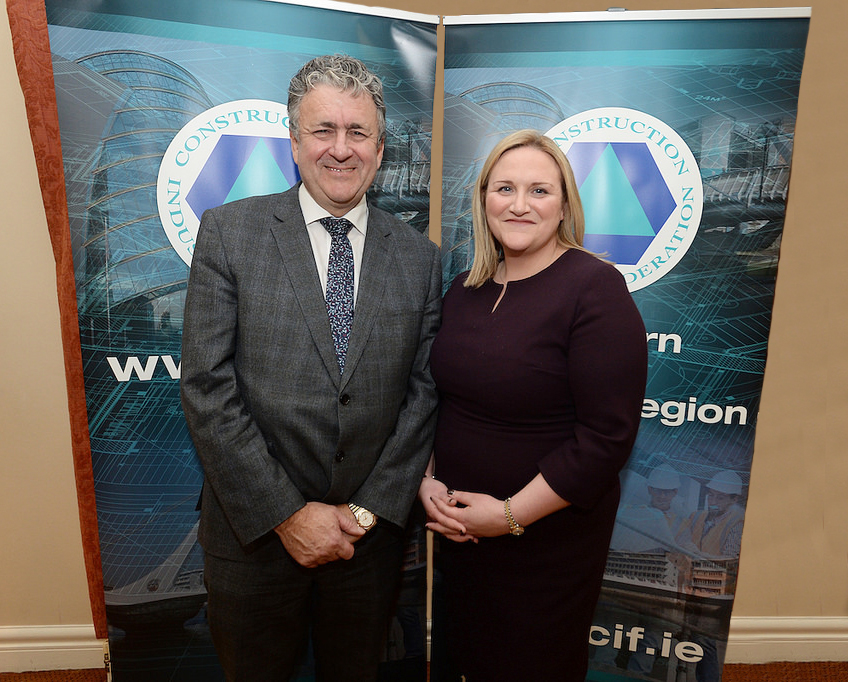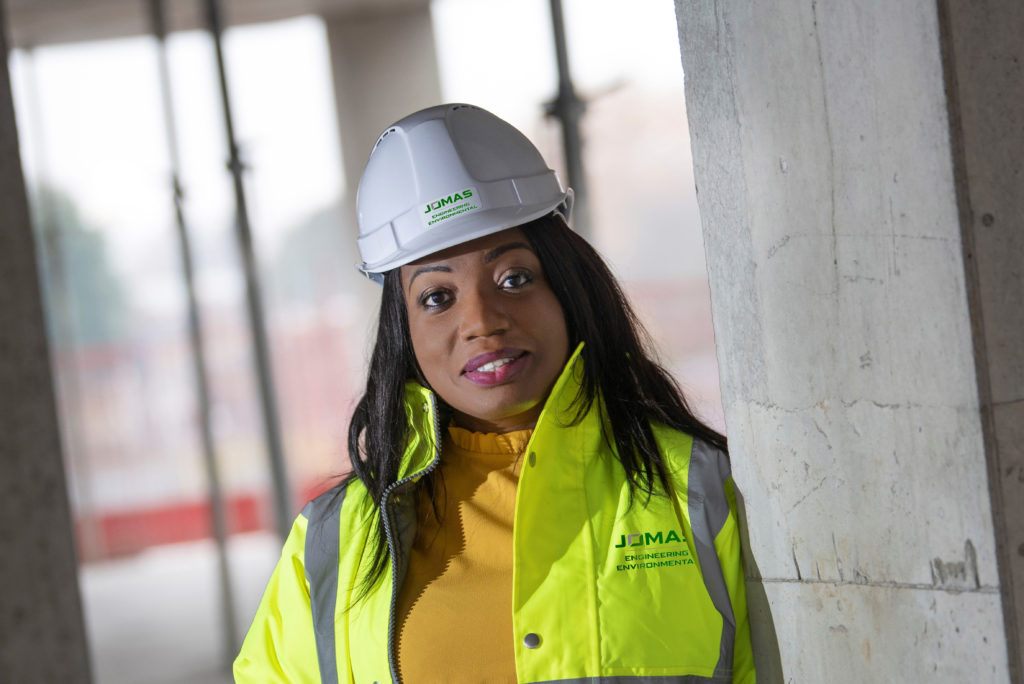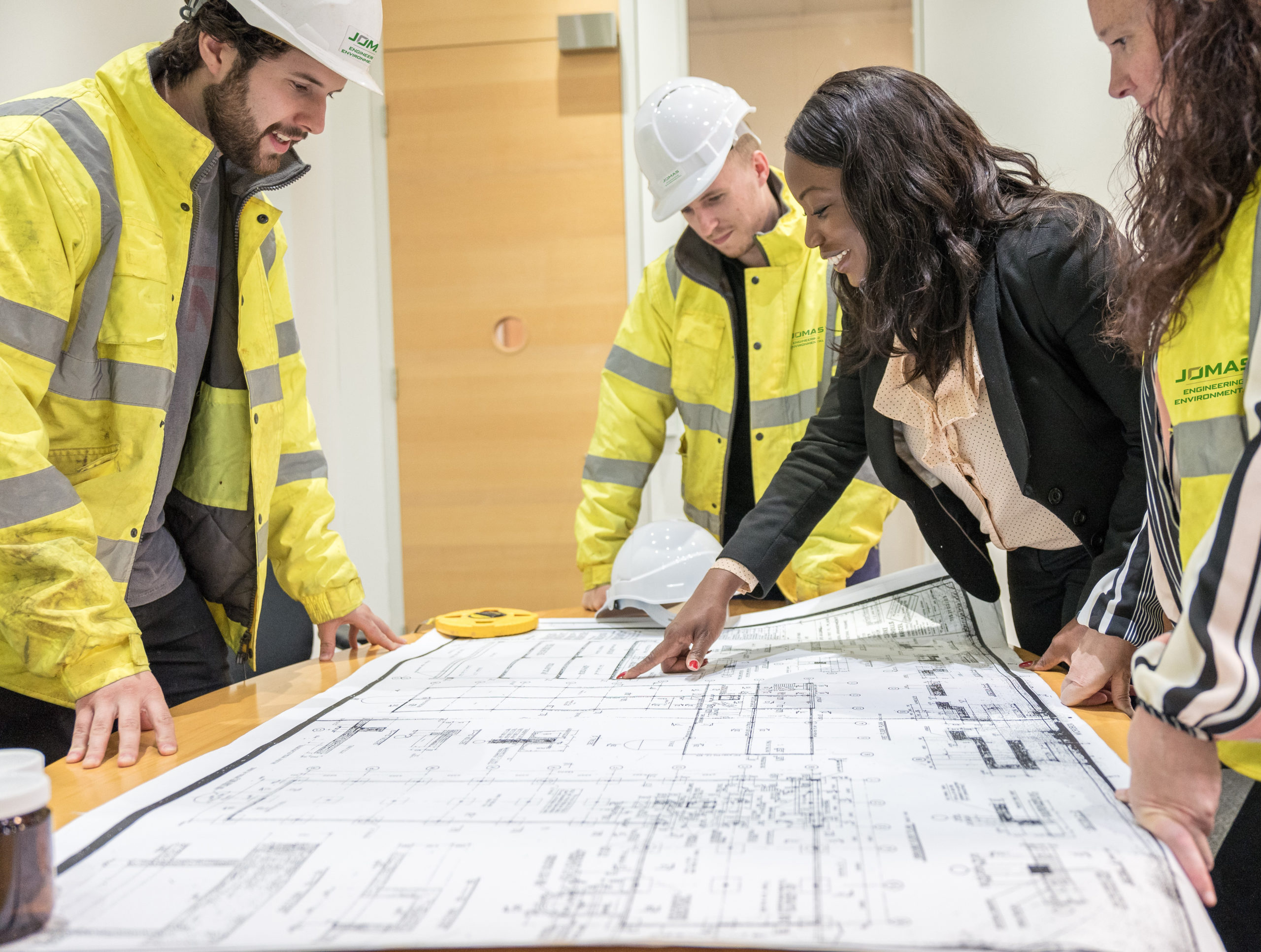The construction boardroom is still the most male of any sector in Ireland. A full 94 per cent of board members in the Irish construction industry are men, according to new data released in July by the Central Statistics Office.
This is even while across Irish businesses, the proportion of women increased to 22 per cent in 2021, from 20 per cent in 2019.
In finance and insurance, women make up 30.3 per cent of board members. In Ireland’s administrative and supportive services, where women’s representation is the highest, it’s fully 33 per cent.
It’s a pace that’s too slow, says Emma DeSouza from the National Women’s Council of Ireland. There is a “stark disparity between women and men in decision-making spaces”, with slow increases and risks of backsliding, she says.
Somewhat brighter news comes in the direction of newer entrants to the industry, though. From the last quarter of 2017 to the last quarter of 2019, just before the pandemic, 5,400 women joined the construction industry in Ireland.
Women made up 8.49 per cent of the industry, up from 5.3 per cent two years before.

Gillian with CIF past president Dominic Doheny
Building equality
“I can’t understand why a company would only want to advertise its positions to 50 per cent of the workforce,” says Gillian Murtagh, who is Shared Services Director at Shay Murtagh Precast, in Raharney, near Mullingar.
“If you take our business, women make up 45 per cent of the design team, 60 per cent of finance and 100 per cent of human resources but there is more we have to do,” she adds. “There are things we can do to make our workforce more inclusive.”
Research indicates men will apply for a more senior role in an organisation if they’re 60 per cent ready, but women think differently. Research shows that they will wait until they meet every criteria before applying, Murtagh explains.
“I believe mentoring is a big part of coaching women to go for more senior roles,” she says. “I’ve had men and women who have helped me take steps in my career when I lacked confidence but they gave me the shove I needed.”
Murtagh’s parents began a pre-cast concrete giant within the industry in 1971, at a time when her mother needed to leave her position with the Department of Posts and Telegraphs (later Telecom Éireann) when she got married.
Murtagh herself on leaving school admits she “didn’t want anything to do with the industry because I didn’t see where I would naturally fit”.
She instead studied travel and tourism, worked in travel sales, and spent a number of years working for an American film company in the west of Ireland before returning to construction in 2000.
Traditionally, she says, at that stage women in the industry “were really in finance and administrative but my love was towards marketing and sales”.
So, Murtagh returned to develop and launch a new division of domestic sales, not part of the company at that time and ended up on sites all over Ireland.
“I just loved the role,” she says.” But I would have people looking for a price on a water treatment system or a culvert, and they would say, ‘could I speak to one of the lads’.”
She adds: “The same guy would turn around and say, ‘is there any chance of a discount?’ and they’d say, ‘well, you should’ve stayed on the phone to Gillian, her name’s on the company’.”
From 2007 to 2010 Murtagh was part of developing the strategy and implementation to successfully make Shay Murtagh a leading supplier of pre-cast concrete products for the UK. The UK represented a new larger market, when Ireland was facing such a dramatic devastating downturn.
Since then, the business has grown significantly and now has a UK manufacturing plant, as well as a design office in Portugal. Most recently, digital transformation has been a large part of her role within the company.
Two years ago she helped her business to adopt a new robotic process automation approach for finance. “We don’t have any paper now in our finance system. If you consider, it would’ve been done pretty traditionally previously,” she says. “An invoice would come in, you’d match it with a delivery docket, the whole thing would be manually input into our finance system.”
Now that is all done automatically – after a year-long process of installing new systems and engaging the staff to adopt. With Brexit now imposing new customs charges and the UK sector feeling a tight crunch in its supply chains, her sights are set.
“To keep our advantage against UK companies we have to find a way of getting rid of some of that administrative price, which we believe can be done through automation and technology,” says Murtagh who is also Joint Chair of the CIF’s Digital Communications and Membership/Training Marketing Working Group.
Industry 4.0 and digital, she believes, is further changing the sector, opening new roles to future candidates.

Roni Savage
Is there a seat at the table?
“Serving the construction industry, I’m the first of many things, but I’m determined I won’t be the last,” says Roni Savage, founder and Managing Director of Jomas Associates, an engineering and construction services company specialising in site investigations and ground reclamation, which she founded in December 2009.
Savage is a black female founder in an industry where neither is very commonplace.
“One of the toughest challenges along this journey is working in an industry where there’s nobody to look up to who looks anything like you,” she says. “In the back of your mind, you’re thinking, is there a seat at the table?”
By most measures anyway, she would seem to have gained her seat at the top table. By training to become a chartered engineer and chartered geologist, her other accolades include serving as the UK Federation of Small Business construction policy chair, as well as a board trustee in the YMCA St Paul’s group – and being named a Forbes inspirational woman for 2021. And she has also appeared on The Apprentice.
The lessons she would give a younger version of herself starting out include the importance of delegation and having a support structure. She also cites dedication, hard work and resilience as key to success.
“I’ve got quite an important support structure and a dedicated team around me, that’s kept me going on the days that have been a challenge,” she says. “I also absolutely love what I do. I stand up, stand out, stand tall.”
In an industry that is more exciting than most, and beginning to recruit growing numbers of women, Murtagh and Savage stand out as mentors and role models at the highest levels.
“My dad would always say, if your job becomes your hobby then you’re never going to work a day in your life,” says Murtagh. For the most part, she says, this has been true for her life in construction. “I’ve loved every single day,” she says.








